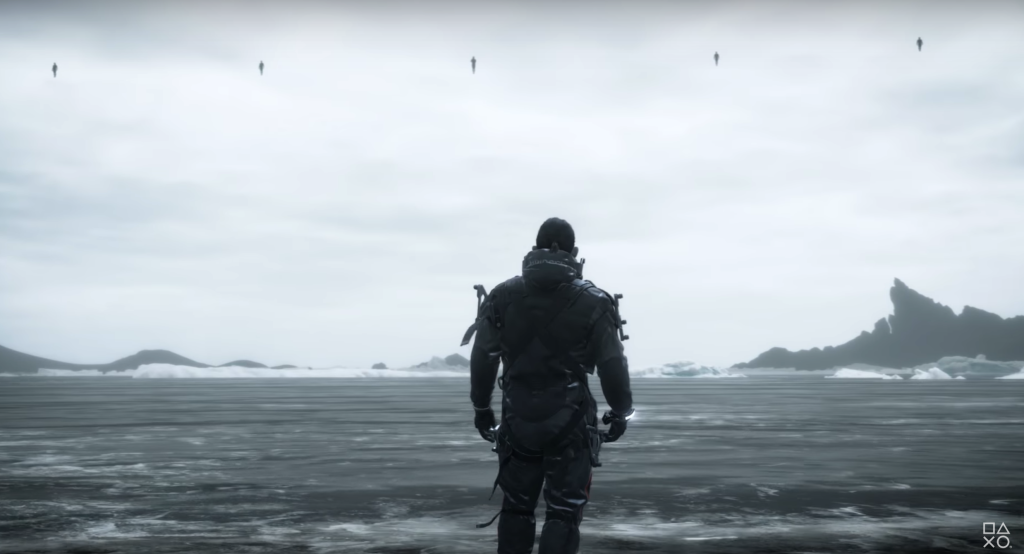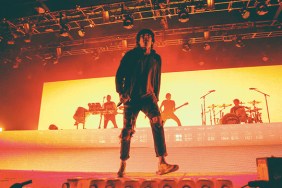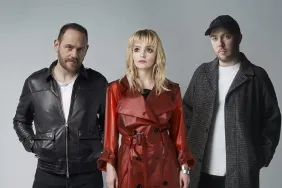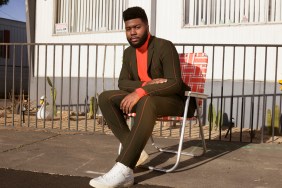In one of the most anticipated events of this decade, noted video game director/visionary/crazy person Hideo Kojima is back with a new title – Death Stranding.
As usual, it’s chock full of Kojima’s…unique artistic style of ‘throw everything at the wall and see what sticks’.
For instance: ‘Why am I carrying around this creepy baby?’ you might ask. The real question is why every other game doesn’t have a creepy baby. There was a creepy baby-shaped hole in the universe and Hideo Kojima said ‘no, this will not do.’ Kojima is a lot less about ‘why’ and a lot more about ‘why the hell not’.
Why else would you have expectations if not to subvert them, after all?
The Kojima approach to style and substance is no less distinctive when it comes to soundtracks. His games have always had a tendency towards the idiosyncratic and the grandiose, and the soundtracks to them are no different.
Just the title theme to Metal Gear Solid II: Sons of Liberty (Harry Gregson-Williams, Andrew Skeet, London Philharmonic Orchestra) is equal parts Alan Silvestri-style strings, Ghosts-era Trent Reznor industrial metal, military reverie, the theme to James Bond, and a dash of Aphex Twin for good measure. In only four minutes. It’s an adventure.
Metal Gear Solid V: The Phantom Pain gave us an even more diverse soundscape. A tactical espionage thriller set during the Soviet invasion of Afghanistan, MGSV’s soundtrack had you flying into combat in a helicopter with speakers blaring just like in Apocalypse Now. You could, of course, choose to play Wagner’s ‘Ride of the Valkyrie’ just like the film, or you could go in…other directions. The slap bass of Hall & Oates’ ‘Maneater’ suddenly had entirely new connotations. The dulcet humming of ‘True’ by Spandau Ballet was an interesting offset to the giant death robot that was chasing you. Personally, I found that nothing scared the hell out of the Reds more than flying in low, missiles firing danger close, popping smoke and flares while blaring out at maximum volume the peak 80’s classic ‘She Blinded Me With Science’ by Thomas Dolby.
So with that in mind, what does the soundtrack to Death Stranding have in store for us? What kind of soundtrack would one expect from a video game called ‘Death Stranding’? A tale of la condition humaine, set in the wasteland of a post-apocalyptic America where the dead roam free.
Would you expect some sort of baroque nightmare? Some sort of classical, orchestral score with strings and antique organs? A leitmotif of sorrow summoned into this dimension by the tortured genius of a Hans Zimmer or a Tyler Bates? No, this is Kojima we’re talking about.
Why else would you have expectations if not to subvert them?
The original score for Death Stranding leans somewhat in this direction, but even that defies categorisation. Longtime Kojima collaborator Ludvig Forssell has crafted a soundscape that is the Lagrange point between Saint-Saëns and Skrillex. And he pulls it off well.
But that isn’t enough for Hideo Kojima and the gang at Death Stranding. Of course not. It has a custom ordered vocal soundtrack with all the bells and whistles to go with it.
Kojima himself has stated that the major theme of Death Stranding is about building bridges and rebuilding a fractured society. Accordingly, the soundtrack – known as Death Stranding: Timefall – is a bridge between different genres featuring Major Lazer and Khalid, Au/Ra & Alan Walker, Bring Me the Horizon, and Chvrches among others.
‘Trigger’, by Major Lazer and Khalid, is appropriately R&B/Dancehall, providing a surprising and welcomingly uplifting beat to contrast with the heavy subject matter of Death Stranding’s post-apocalypse; as does ‘Ghost’, by Au/Ra, which deals with the core theme of “no man is an island” in much the same way.
The soundtrack begins to dive into the sombre, with ‘Yellow Box’ by The Neighbourhood and ‘Ludens’ by Bring Me The Horizon, which bring some darkness and rock with an industrial edge which is so thematically on-point that it draws blood.
The S.L.P gives us ‘Meanwhile…In Genova’, which is my personal favourite track of the album, blending equal parts Wall of Voodoo with Tomoyasu Hotei and creating something funky and slightly sinister which instantly went into my gym rotation.
In a thematic mirror to the opening tracks, the album is rounded out with ‘Born In The Slumber’ by flora cash and ‘Sing To Me’ by Missio, taking that which came before them – the hope and the bleakness – and bridging them in keeping with the leitmotif established by the Death Stranding vision.
The Death Stranding title track itself is performed by Glaswegian pop trio CHVRCHES. This is an inspirational, lofty and cheerful ballad about the power of honesty in interpersonal relationships. If I were to look back at my preconceptions for a potential Death Stranding soundtrack I wouldn’t have seen this coming. And that’s great.
https://youtu.be/AGKpjOfjz48
The thing is…it works. This incongruence in the soundtrack balances the palette. Going all-in on the dark and heavy would have been too much. It would have been too much indulgence in misery. But by leavening the subject matter of the game with an uplifting soundtrack Hideo Kojima keeps the levels balanced. Once again the tactic of ‘why the hell not?’ is the correct one.
Death Stranding, across the board, is a testament to the idea that if you get awesome people to do awesome things, you’ll end up with an awesome product.
–
Stream the ‘Death Stranding: Timefall (Original Music from the World of Death Stranding)’ now.












